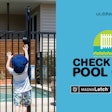
The National Retail Federation is renewing its efforts in Congress to require online sellers to collect sales tax the same as local stores.
“With more states passing sales tax laws or going to court, pressure is building on Congress to finally address this issue,” says NRF Senior Vice President for Government Affairs David French. “The states know they can’t fix this on their own, but they agree with retailers that Congress has stalled for far too long. Online sellers should not continue to receive an unfair price advantage.”
Senator Michael Enzi, R-Wyo., recently reintroduced the Marketplace Fairness Act, legislation that passed the Senate in 2013 but never received a vote in the House. In the meantime, Representative Kristi Noem, R-S.D., reintroduced a House version that had also been delayed, the Remote Transactions Parity Act.
The two measures vary in details but both would allow states to require out-of-state sellers to collect sales tax regardless of whether they have a physical presence in a customer’s state. Under a 1992 U.S. Supreme Court ruling, out-of-state sellers can be required to collect only if they have a physical presence such as a store, warehouse or office.
RELATED: How to Compete With Online Retailers
Various bills that would effectively overturn the Supreme Court ruling have been introduced in Congress over the past 15 years, but none have won final passage. In the past two years, several states have passed or considered legislation requiring collection nonetheless, with some acknowledging that the ruling leaves them without authority to do so but saying they want to prompt Congress to act or the Supreme Court to reconsider the issue. States and local governments lose close to $25 billion a year because of untaxed online sales.
In 2015, Justice Anthony Kennedy said the court made a mistake in 1992 by relying on an out-of-date precedent on physical presence. His comments came as the justices allowed a lawsuit to go forward against a Colorado law that stopped short of requiring collection by sellers but required them to report untaxed purchases so the state can collect directly from consumers. Kennedy said the Colorado, which was eventually allowed to stand, wasn’t broad enough to reconsider the 1992 ruling, but invited online sales tax supporters to find another case that might allow the court to correct itself. More recently, 11 states asked the court in November 2016 to reconsider the 1992 ruling.




































